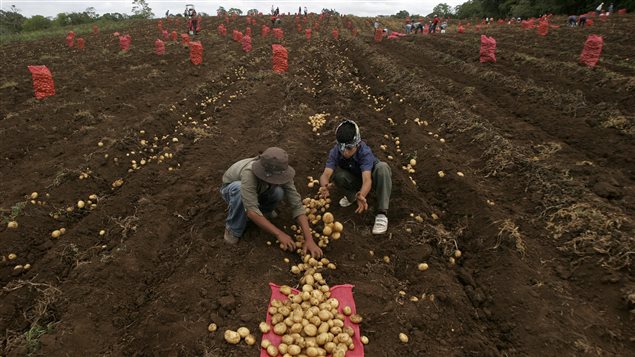Another Canadian charity is suffering the ill-effects of a Canada Revenue Agency political-activities audit.
A small Vancouver-based NGO that helps the poor in Latin America says it faces a financial crisis because the CRA ordered it to translate into English or French every scrap of paper it receives in Spanish from 17 partners in El Salvador, Nicaragua, Honduras and elsewhere.
Barbara Wood, the executive director of CoDevelopment Canada Association, known as CoDev, says the charity passed a recent CRA audit but the new demand is draining precious resources.
Her small four-person headquarters must now grapple with banker’s boxes full of Spanish-language documents from its Latin American projects, including taxi chits and bus-fare receipts.
Failure to follow the order, the CRA says, will result in a lose of CoDev’s charity status, making it much harder to raise funds to support its projects.
Critics say the case is another example of how the CRA’s political-activities audits are affecting non-profit organizations, even if they pass the new class of audits instituted by Prime Minister Stephen Harper’s Conservative government in 2012.
The Conservative government set aside an extra $8 million in its 2012 budget for the audits. Opponents say they are politically motivated. The CRA and Conservative Party politicians say they are not.
The CRA is currently investigating 52 charities. It has not publicly released the names of those being audited. Neither have many of the charities involved.
The ones that are known have had policy differences in the past with the Harper government. They include Amnesty International Canada, the Canadian Centre for Policy Alternatives, Canada Without Poverty, PEN Canada, Kairos and the David Suzuki Foundation.
CoDev, too, has had policy differences with the Conservative government, raising questions about Canada’s free-trade deal with Colombia, among other issues.
Based on a government policy initiated in 2003 by the then-governing Liberal Party, charities are permitted to spend up to 10 per cent of their resources on political activities and are not allowed to endorse a party or a candidate.







For reasons beyond our control, and for an undetermined period of time, our comment section is now closed. However, our social networks remain open to your contributions.